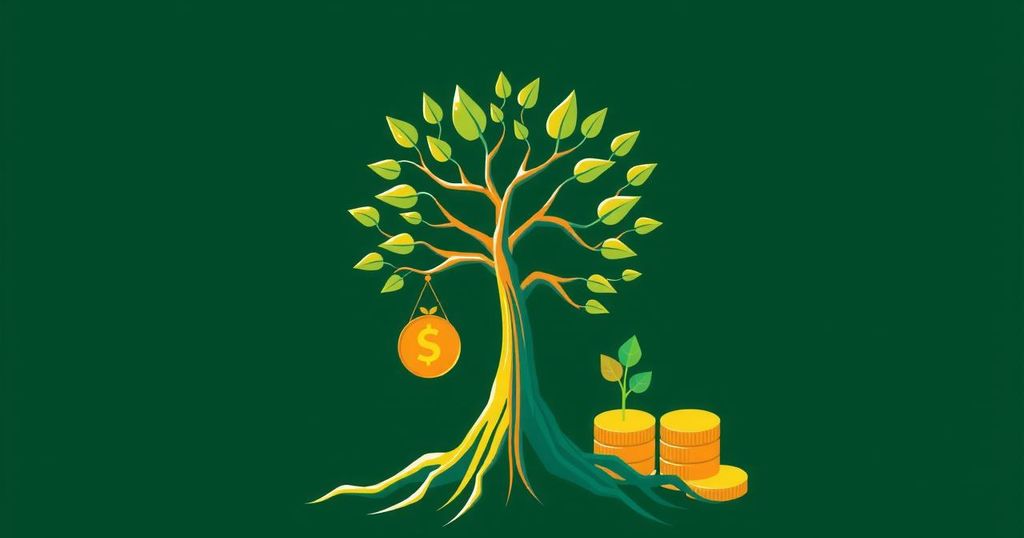Professor John Gatsi advocates for Ghana to bolster its financial systems to end reliance on IMF bailouts, attributing this dependence to poor economic management. He stresses the importance of strong financial policies for independence, suggesting disciplined fiscal strategies and targeted investments could prevent future bailouts.
Professor John Gatsi, an economist and member of the National Economic Dialogue Planning Committee, emphasizes the need for Ghana to strengthen its financial systems to reduce reliance on International Monetary Fund (IMF) bailouts. He attributes the country’s recurring dependence on the IMF to insufficient economic management. By establishing robust financial safeguards, Ghana could navigate economic challenges independently without seeking external assistance.
Ghana has sought IMF bailouts 17 times, with the most recent, a $3 billion package, secured in 2022 amid economic decline. The nation is grappling with substantial debt levels, low revenue, and ongoing budget deficits that threaten its financial stability. To avoid future bailouts, Professor Gatsi, who serves as the Dean at the University of Cape Coast Business School, underscores the importance of implementing sound financial policies.
He advocates for disciplined fiscal management, improved revenue collection, and targeted investments in critical sectors, essential for achieving financial autonomy. “We will not be drifting towards the IMF at the least financial distortions or at the least threat that is directed towards the finances of this country,” he asserts, envisioning a Ghana that relies on its own developed buffers instead of external financial support.
To achieve financial independence, Ghana must prioritize strengthening its financial management and policies. Professor Gatsi’s insights underline the necessity of disciplined fiscal strategies and targeted investments, which could help the nation overcome its economic challenges without recurring to IMF assistance. Ultimately, building robust financial safeguards is key to stabilizing Ghana’s economy.
Original Source: www.gbcghanaonline.com






